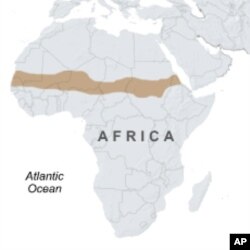This month, Turkish Airlines became the first major commercial carrier to fly directly to Somalia in more than 20 years. The move is the latest high profile step Turkey has taken to extend its economic and political influence on the African continent.
Turkish Airlines inaugural flight to the Somali capital, Mogadishu, is the latest high profile move in Turkey's commitment to the war-torn country.
Last year, Turkish Prime Minster Recep Tayyip Erdogan was the first Western leader in decades to visit Somalia. Turkish Deputy Prime Minister Bekir Bozdag, speaking to journalists on the flight to Mogadishu, stressed that his country is committed to supporting efforts to bring peace to Somalia.
Bozdag said there are serious security problems, which he says will not to be solved in the short term. But he saidTurkish leaders have expressed their opinions on what needs to be done to bring about peace and that Turkey welcomes positive developments toward that end.
According to Turkish media reports, Ankara is working to end fighting between Islamist al Shabaab militants and the Somali government and African Union forces. Turkish aid agencies are operating in both Somali government and al Shabaab controlled regions. Ankara has also indicated it is prepared to offer training and support to the Somali government.
Turkish Foreign Ministry Spokesman Selcuk Unal said Turkey's efforts are part of a growing commitment to sub-Saharan Africa.
"There are so many frozen conflicts in Africa and we, as a country which has always conducted steady relationships with the north part of it, [and] we are trying establish concrete relations with the sub-Saharan countries in the last decade," Unal said. "I think there is sincere interest on our side to extend aid to those regions as well."
Elsewhere Turkish Prime Minister Erdogan has defended the Sudan's government against accusations of genocide in Darfur, but Ankara has also worked to defuse tensions between Sudan and newly independent South Sudan.
The Islamist roots of Turkey's ruling AK party give it an advantage with the emergence of new governments in the Arab spring countries, according to SInan Ulgen, a former senior Turkish diplomat who now heads the Center for Economics and Foreign Policy Studies, an independent think tank in Istanbul. He saidTurkey's diplomatic efforts in Sub-Saharan Africa are a logical extension of its deepening ties with Arab neighbors.
"Given that most of these new actors will have an association with political Islam, these are going to be the new rulers of these countries and Turkey is in a very favorable position to establish links with the new leadership of these countries," Ulgen said. "In an as far [as] sub-Saharan Africa is concerned that is a new geography for Turkey and the dynamic there is Turkey will increase its economic opportunities. So Turkey is now opening up a host of new embassies across Africa."
The expansion of embassies across the continent coincides with a similar growth in work by TIKA, the Turkish International Cooperation and Development Agency. There has also been a major expansion in flights by Turkish Airlines to Africa. These initiatives have led to a threefold growth in exports to Africa since 2010.
Mehmet Ardar, a Professor of International relations and an expert on development in Africa, at Galatasaray University, said Ankara is following a carefully balanced strategy toward the continent.
"Turkish airlines and then the diplomatic services as well have opened [a] large number of new embassies and each new embassy comes with a facilitation of business by the Turkish investors and Turkish businessmen," said Ardar. "The government actions, aid, diplomacy and business has gone together. It is part of globalization and Turkey becoming a global actor."
Ardar and other analysts saidTurkey's diplomatic and commercial push into sub-Sharan Africa has made it a competitive player in Africa - especially against other rising powers like China and India.





